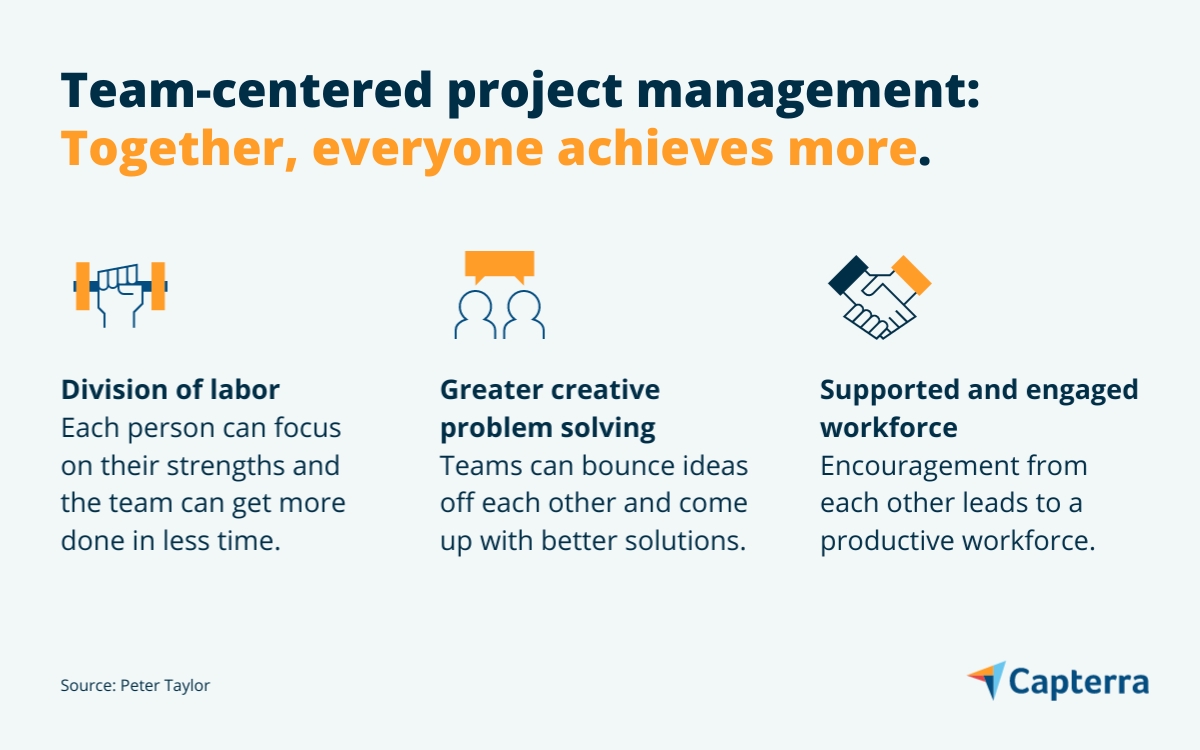Discover the capability of true team performance in project management and how your team can get there.
A focus on project team performance will be the next quantum leap in project success. But the challenge today, and increasingly so into the future, is that projects are becoming more complex in their nature, with increased expectations of delivery and greater scale. Teams are also more remote in nature, which adds to the challenge for team leaders to know how their team members are feeling and what they can do to aid performance levels and engagement.
With this focus on team performance in mind, even high-performing teams should be continually examining their interpersonal dynamics and collective approach to challenges. But how can you take advantage of this people- and team-centric future in your own organization?
To understand the future progression of project team performance, I believe that there are five principles that are first required to be acknowledged and then used as the building blocks for a future world of high-performing teams. All of this should be driven through great people leadership—and powered through team analytics.
The power of teams

For me, it is all about putting people back into project management and a focus on people back into team dynamics.
There is a real power to teams, in that they are more likely to achieve larger goals than individuals alone, and they are more likely to be innovative, more productive, and more adaptive as changes in the marketplace or workplace occur.
The advantages of teams over individual workers are very clear. The successes that I have had over the years in project delivery and PMO leadership could not have happened without performing teams. None of this is a solo effort.
5 principles for enhancing project team performance
#1: Acceptance that it’s time for a new approach
One cannot go about making a change effectively if they don’t believe that change is necessary. The first step to progress is to accept the necessity for progress to be made. No matter what the past or current success levels are, there is always room for improvement.
You need to really understand the importance of a people-centric approach. After all, these are the people who work on the front lines every day; those who can make an immediate difference to an organization’s performance. They can do this by starting with team performance and team well-being to ultimately achieve team success.
#2: Empowering managers has never been more important
The world is changing at an increasingly fast pace. Because the pandemic has accelerated the transition to remote work and in-person interactions (both formal and informal) have fallen by the wayside, it has never been more important for managers to find ways to keep their fingers on the pulse regarding their teams’ performance and engagement. Working virtually will inevitably make issues harder to notice and will increase the likelihood of problems sneaking up on unsuspecting managers.
As the rate of change accelerates, organizations must become more agile. Those who can adapt rapidly will survive; those who can't, won’t. To make the right decisions swiftly, managers need data delivered in real-time. They need leading data points on team performance that can help them tackle issues as they arise—not lagging data points that highlight issues after they’ve come to the fore—measuring performance not merely to evaluate team members but to empower them.
Without timely insights, managers are essentially left flying blind, unable to understand the human factors that impact team dynamics, performance, and engagement.
#3: This change is critical for all project-based teams
As we’ve stated, the need for real-time performance data is particularly pressing for managers of project-based teams. The way these cross-functional teams operate and the way they are assembled and disassembled means that they face greater uncertainty and urgency than functional teams do. As a result, a great deal of agility is required from project-based teams.
To succeed consistently in our projects, we must give managers and teams the insights they need to solve problems collectively, before they escalate, and to make more informed decisions. This need will only become more apparent with the ongoing shift toward project teams and away from traditional teams in our world of work.
#4: Identifying areas for improvement
Most organizations are doing some form of team feedback, retrospection, or assessment already, albeit ineffectively. It is generally too infrequent, not mandated, systematic or automated—but it’s a great way to start by identifying the closest thing to what you already have and expand on that as a low-hanging fruit.
Since retrospectives are unfortunately mostly focused on work and not the team, they’re not always inclusive—often the same team members contribute their opinions, with the quieter bunch staying silent.
We’ve seen many teams start improving their retro practice by implementing a data or analytics tool and then rocking up to a retro equipped with insights and ready to act together as a team—often already having asynchronously found solutions. This also allows all team members to participate and provide suggestions without feeling any form of trepidation or fear of scrutinization.
#5: Start today, not tomorrow
I truly hope that, through reading this article, and other research and experience, you will reach the (inevitable) conclusion that this change is coming.
The call to action is simply, start today, don’t leave it to see what happens to other organizations or what happens to other teams. Instead take the lead, take control, take the advantage.
As noted in principle #4, you are, most likely already doing this in some way and this can form the platform for progression to a much more productive world of project team performance, the world of team analytics.
To read more from Peter Taylor and see the rest of his work on Capterra, check out the following pieces:
And for more resources on guiding your project management team, take a look at these additional Capterra pieces:

